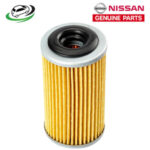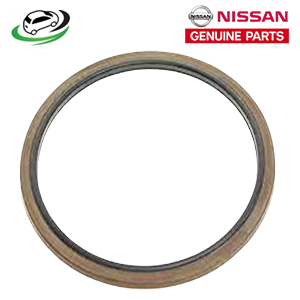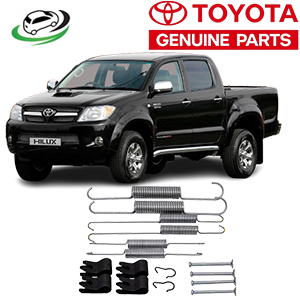-17%






Nissan Genuine Oil Filter Assy 3172628X0A
Part No: 3172628X0A
Brand: Genuine
Fits: Various Nissans
KShs3,000 Original price was: KShs3,000.KShs2,500Current price is: KShs2,500.
Payment Methods:
The oil filter assembly is a crucial component in an internal combustion engine, designed to remove contaminants from engine oil. These contaminants include dirt, metal particles, carbon deposits, and other impurities that can degrade the oil’s performance and cause damage to engine components. The genuine oil filter assembly, often provided by Original Equipment Manufacturers (OEMs), guarantees optimal performance, longevity, and compatibility with the engine. This detailed explanation dives into the functions, benefits, types, and maintenance tips related to a genuine oil filter assembly.
The primary role of an oil filter assembly is to ensure that clean oil circulates through the engine, which is essential for the following reasons:
A genuine oil filter assembly typically consists of the following components:
There are different types of oil filters available, each serving specific functions and operating under different principles:
Regular maintenance of the oil filter assembly is critical for ensuring it continues to perform its job effectively. Here are some maintenance tips:
A genuine oil filter assembly plays a vital role in maintaining the health and performance of an engine. It ensures that the oil circulating through the engine remains clean and free of harmful contaminants. Regular maintenance, including timely oil and filter changes, is key to maximizing the life and efficiency of the engine. Opting for a genuine oil filter assembly guarantees quality, compatibility, and peace of mind, ensuring your vehicle operates at its best for years to come.
Follow us on Facebook for more parts.
You must be logged in to post a review.
No account yet?
Create an AccountTEAM ONESTOP
Typically replies within minutes
Looking for parts?

Stanley Sales
German Parts Specialist
Rose, Sales
Toyota, Mazda, Ford Specialist
Esther Sales
Honda, Mitsubishi, Suzuki Specialist

Muthoni Sales
Nissan, Subaru, Renault Specialist
Garage Admin
Garage Admin
🟢 Online
WhatsApp us
Reviews
Clear filtersThere are no reviews yet.